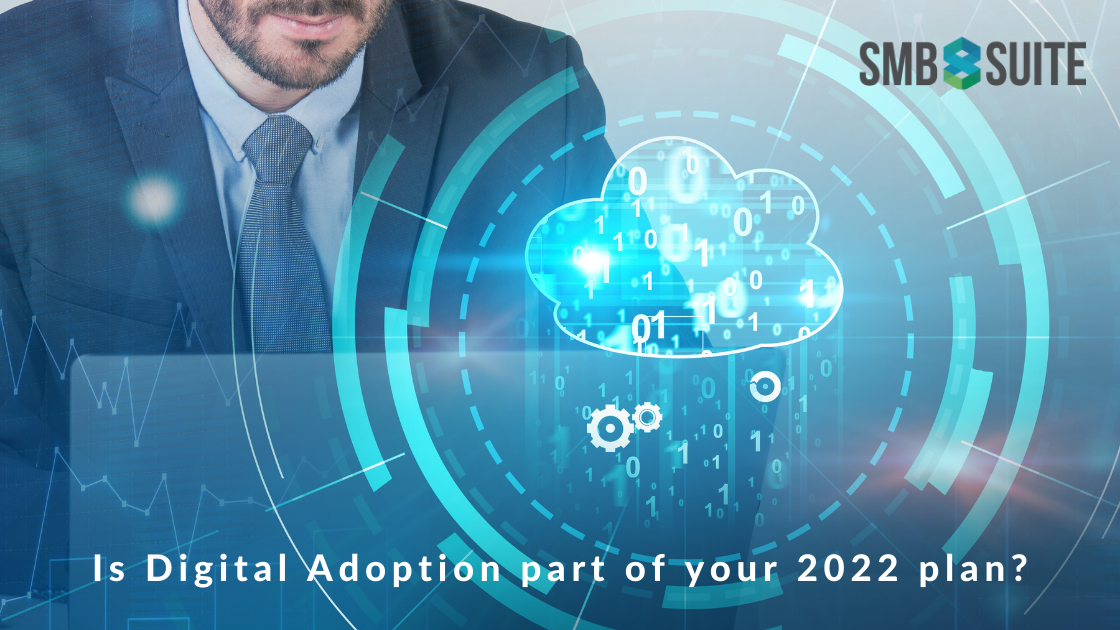
Is Digital Adoption part of your 2022 plan?
In early 2020, many companies were thrown for a loop when they were forced to adapt their work strategies and business dealings for remote work. Their existing technologies may not have been the best suited for the situation, but with some adjustments and accommodation, people made it work. But the thing is, this is also how many companies plan for digital adoption – to throw some technology together, and hope it works, and not think about it again.
As Stewart Butterfield, CEO of Slack noted in a recent LinkedIn post, “When I tally up the time I’ve spent on real estate budgets, office build outs, conference room design, leases and sublets, seating plans and all the other aspects of our physical headquarters, it is an order of magnitude greater than the time spent thinking about our digital HQ. And I’m the CEO of Slack! That’s bananas.”
His comments bring up an important point about reassessing the focus placed on tangible objects, like office space, vs the digital components, which are easy to overlook because they’re not physically present. But as digital becomes more and more important in how many businesses do their day-to-day business, and in forecasting and overall business success, it is time to reassess how we plan for our future.
Making digital adoption intentional
Now, nearly two years after many offices were forced to shut down, and employees to work from home, it doesn’t look like companies or employees want to go back to the way things were either. What many have learned that employees can work from almost anywhere, and in some cases are more productive than when in the office, with the lack of a daily commute contributing to more opportunities to maintain a work-life balance. Now, that’s not true for all industries, but it is for many.
While offices may start opening up, it can’t be denied that the hybrid working model is here to stay, and as a result, it’s imperative that businesses are able to engage in this model in sustainable and secure manner. Businesses should take this opportunity to reassess how they use and interact with their technology and implement it accordingly to enable them to be even more productive.
Shifting consumer behaviors and business trends are motivating SMBs to innovate in new and exciting ways, implementing modern yet proven solutions to meet the needs of their customers and their employees. Even tech providers have taken note and anticipated this shift, an example being the recent Microsoft Teams announcements that provide new capabilities and features that help workers both remote and in-office collaborate and work more effectively to create a more inclusive work environment.
A whole new (technological) world
With new technology, businesses can address challenges in consumer engagement, streaming content delivery, data management, and remote work environments, just to name a few. SMBs can transform themselves with future-forward technology, ensuring recovery, growth, and global competitiveness across industries. They’re innovating in many ways, such as scaling digital customer engagement with Microsoft’s Azure, enabling remote work collaboration with Office 365 and Teams, empowering sales teams with improved data visualizations through Power BI, and streamlining inventory management with Dynamics 365.
Another reason why digital adoption should be an intentional part of your 2022 plan? To help your business pivot to new consumer and industry trends to keep up with the competition – and not get caught behind just because you’re not able to shift your business fast enough. And with the breathtaking pace many industries operate, the faster you’re able to adapt, the better that reflects both on your reputation and your revenue.
Hybrid work is the new reality, and a world which businesses need to equip themselves to thrive and empower their employees. Before you finalize your 2022 plan, take stock of what you have, and where you would like to be.
It can be overwhelming to decide what should and shouldn’t be implemented, as the technology discussed above are far from the only options available in the market. And, top this off with what can seem like a significant upfront investment.
But this need not be the case.
We take a different approach to supporting our clients with our All-in-One pricing model. SMB Suite bundles software, services, upgrades, and support into one monthly price. This means:
- ZERO Implementation fees – we don’t spread it out over your payment term, because they don’t exist!
- Includes all implementation and ongoing support
- You see exactly what is going on – no hidden surprises
- We’re not done until you say we’re done
We customize, configure, and integrate your technological solutions so they work to serve your business needs, and allow you to get back to work.
Talk to us to find a solution that is tailored for your business!

